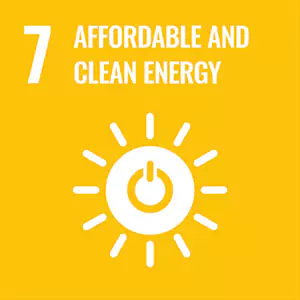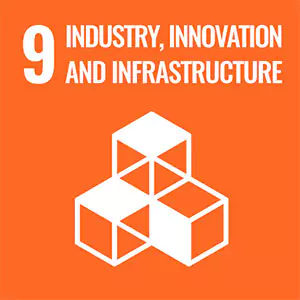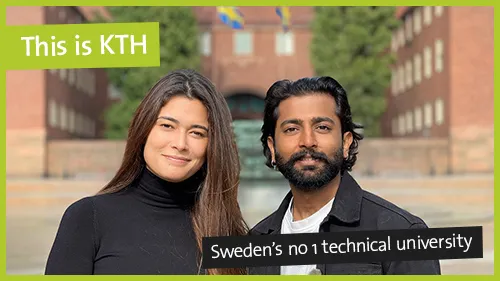MSc Decentralized Smart Energy Systems
Decentralized smart energy systems play a vital part in the transition towards a low carbon society by integrating renewable energy sources in the energy system. Students in the programme acquire skills to design, size, optimize and operate these energy systems. Graduates have a holistic overview of decentralized energy systems, specialized competencies in energy engineering and a strong international network.
Decentralized Smart Energy Systems at KTH
The Erasmus Mundus Joint Master’s Degree “DENSYS” aims to educate highly skilled engineers who can design, optimise, and operate decentralised smart energy systems. The programme takes a multi-physics approach and provides students with a strong systemic understanding of the complex interactions within energy systems.
It also prepares future researchers for both the public and private sectors, addressing the need for continued R&D in decentralised energy systems. This includes training at multiple levels: at system scale (e.g. smart management), component scale (e.g., optimisation of the lifespan, energy efficiency or density), and elementary mechanisms scale (e.g. funamentals).
Students develop a “T-shaped” educational profile: deep expertise in mechanical, chemical, and electrical engineering, combined with broad interdisciplinary knowledge. This enables them to understand the complexity of decentralised energy systems and collaborate effectively across disciplines.
In addition to technical and academic training, the programme offers a rich international experience, including cultural and language immersion, and access to a strong European network of institutions and professionals.
This is a two-year, 120 ECTS master’s programme jointly built with four academic partners across Europe: the University of Lorraine—UL (Nancy, France), KTH, Royal Institute of Technology (Stockholm, Sweden), Polytechnic University of Catalunya—UPC (Barcelona, Spain), and Polytechnic Institute of Torino—PoliTo (Turin, Italy). One of the programme’s strengths is precisely the broad network of associated partners from international universities, SMEs, large industries, and other EU consortia.
The programme includes an integrated mobility scheme, with the first year spent at the University of Lorraine (UL). During this year, students build a strong foundation in the physical principles and governing parameters of the leading renewable energy sources, energy storage technologies, and conversion systems between energy carriers applied to the control and optimisation of smart multi-carrier decentralised energy systems.
In the second year, students continue their studies at one of the partner universities (KTH, UPC, or PoliTo), where they choose a specialisation in one of three areas: integrating decentralised energy systems into global energy systems, thermal energy engineering, or energy storage through power-to-X technologies.
The final semester is dedicated to an internship or master’s thesis, typically carried out in collaboration with DENSYS associate partners from industry or research institutions. This hands-on experience allows students to apply their knowledge in real-world settings and build professional connections. Examples of past internship/thesis work include Vattenfall, Sweden; ENSTOe, Belgium; International Energy Agency, France; Huawei Technologies, Germany; Scania, Sweden; Arcelor Mittal Research- France; Rocky Mountain Institute, USA.
To further enrich the learning experience, the programme organises two joint summer schools focused on networking and developing both entrepreneurial skills and technical skills, such as energy storage, hydrogen or energy systems modelling. It is also possible to participate in an immersive week at the University of Liège, Belgium. This opportunity offers specialised training in the use of artificial intelligence for managing energy networks, bringing together the programme’s technical, interdisciplinary, and international dimensions.
To broaden students’ perspectives, the programme offers a wide range of complementary courses in social sciences and humanities. These cover topics such as energy policy, geography, social acceptance, risk perception, finance, and business, and are combined with an integrated cultural and language experience.
A key part of the teaching approach is case- and challenge-based learning. Students work on large, multidisciplinary projects based on real-world problems, often in collaboration with industrial partners, policy makers, local stakeholders, and civil society organisations.For students choosing to complete the third semester at KTH, double master's degrees will be awarded from UL and KTH.
Sustainable development
Graduates from KTH have the knowledge and tools for moving society in a more sustainable direction, as sustainable development is an integral part of all programmes. The three key sustainable development goals (SDGs) addressed in the Erasmus Mundus master's programme Dencentralized Smart Energy Systems are:



- SDG7 (Affordable and Clean Energy) is addressed in the courses Renewable Energy Technology, Key Technologies of DES & Energy Conservation Processes, and Energy Data Balances and Projections.
- SDG9 (Industry, Innovation and Infrastructure) is covered in the courses Materials for energy conversion, Energy transition and territories, Green Building Concept Design Construction and Operation, Energy Storage and Energy System Economics.
- Programme courses that address SDG11 (Sustainable Cities and Communities) include Smart and flexible Energy management, Life cycle analysis, Global energy markets and systems in transition.
The overarching approach to these SDGs is further attained through challenge-based projects, where students collaborate closely for one full year with industrial partners on real-world challenges in the field of decentralised smart energy systems.
Associated partners and career opportunities
Several associated partners have joined forces with the DENSYS Erasmus Mundus programme, allowing students to work with them during and after the programme's curriculum. Here is a list of the current partners:
Companies
- ArcelorMittal, France
- John Cockerill, Belgium
- Flower Infrastructure Technologies AB, Sweden
- Snam s.p.a., Italy
- Sener Mobility sa, Spain
- Termo Fluids sl, Spain
- Southern Lights ab, Sweden
Universities
- Université de Liège, Belgium
- Esade Business School, Spain
- European Energy Research Alliance
- Accademia Europea Di Bolzano, Italy
- Eidgenoessische Technische Hochschule Zuerich, Switzerland
- Alliance Européenne de Recherche, Belgium
Read more on the and apply on the DENSYS website

